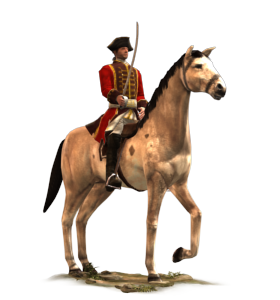Difference between revisions of "Life Guard (ETW Unit)"
Tango12345 (talk | contribs) m (Removed category "Heavy Cavalry" (using HotCat)) |
Tango12345 (talk | contribs) m (Quick-adding category "Empire Total War Units" (using HotCat)) |
||
| Line 9: | Line 9: | ||
==Factions== | ==Factions== | ||
*[[Great Britain (ETW Faction)|Great Britain]] | *[[Great Britain (ETW Faction)|Great Britain]] | ||
| + | |||
| + | [[Category:Empire Total War Units]] | ||
Revision as of 12:08, 5 September 2011
Overview
Royal guards are elite, but they are also a court regiment where appearance is as important as fighting ability. As gentlemen they are hardly expected to associate with the common sort of soldier, and this does not make them popular or respected with the rest of the army. They are also often unloved by the general populace too, as they are the last line of defense for the royal family, and this may mean that they are sometimes required to turn their swords on their countrymen to put down domestic trouble.
Historically, perhaps the oddest sounding of the various royal guard cavalry regiments were the curiously named horse grenadier guards. Common sense would seem to indicate that these men would only ever get to throw their grenades once, before their horses took off at speed towards all points of the compass! In British service the Household Cavalry regiments did not, and do not, have sergeants: they have a rank “corporal of horse”. The word “sergeant” has the same origins as “servant”, and no gentleman, even a private trooper, is ever a servant.
